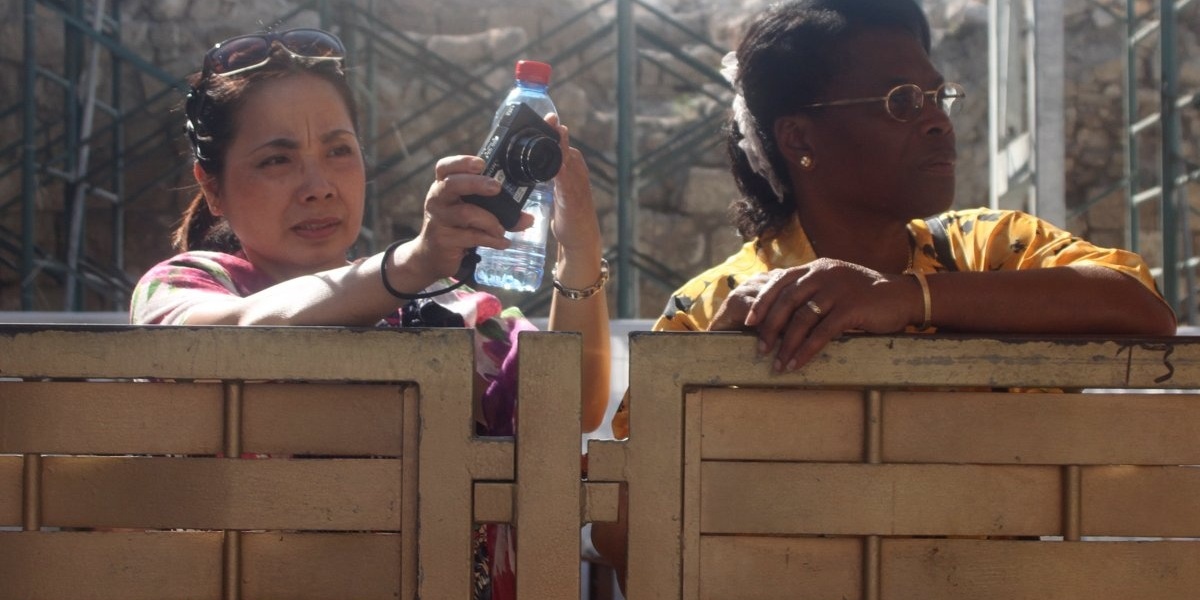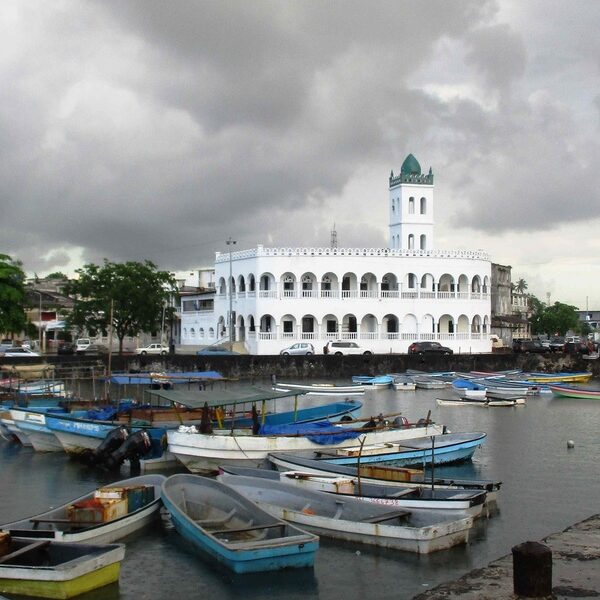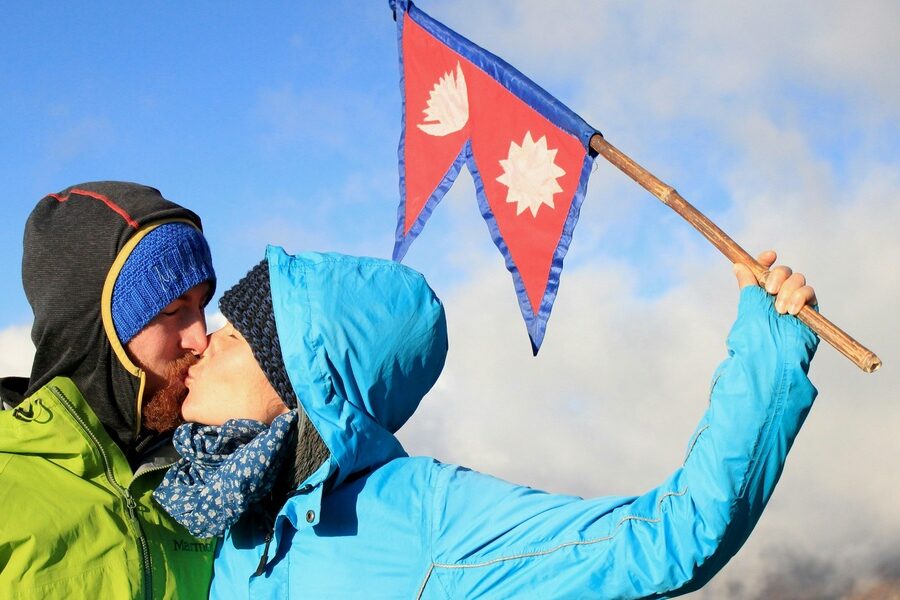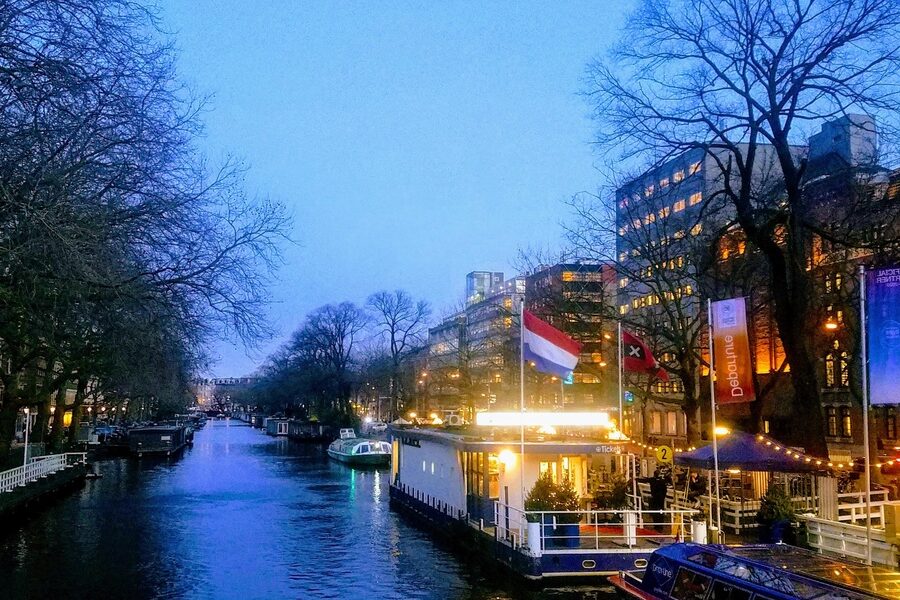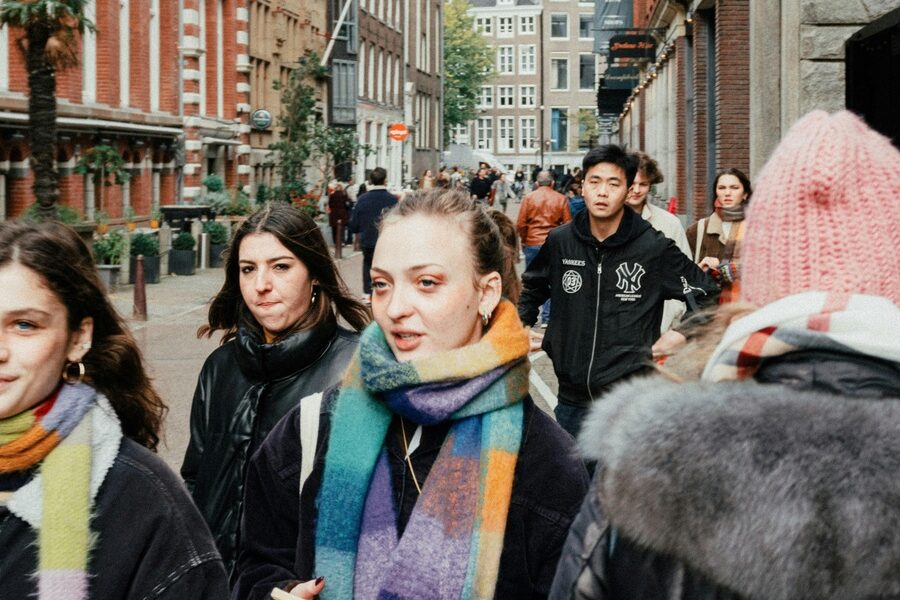Suriname’s mix of Dutch, Sranan Tongo, Hindi, Javanese and many Indigenous languages makes it a fascinating place to visit and communicate. Knowing a few local phrases eases market haggling, directions, and polite interactions across Paramaribo’s streets and the interior villages, and it makes travel more enjoyable.
There are 64 Useful Phrases for Tourists in Suriname, ranging from Ai to Watra. Each entry is organized with Language, Phonetic, Translation so you can see where a phrase comes from, how to say it, and what it means—you’ll find the full list below.
Which phrases should I learn first for a short trip to Suriname?
Start with greetings, please/thank you, basic directions, numbers, and emergency words—these cover most short-trip needs. Focus on the common local languages for the area you’ll visit (Dutch and Sranan Tongo in Paramaribo; Indigenous or Maroon languages in interior regions) and use the phonetic column to practice before you go.
How reliable is the phonetic column for pronunciation?
The phonetic guide gives a practical approximation to help you be understood, but local pronunciation varies and some sounds don’t match English exactly. Use the phonetics as a learning aid, listen to native speakers when possible, and don’t be afraid to ask for a repeat.
Useful Phrases for Tourists in Suriname
| Phrase | Language | Phonetic | Translation |
|---|---|---|---|
| Goeiedag | Dutch | HOO-yuh-dakh | Good day |
| Goeiemorgen | Dutch | HOO-yuh-mor-ghen | Good morning |
| Goeiemiddag | Dutch | HOO-yuh-mid-dakh | Good afternoon |
| Goeienavond | Dutch | HOO-yun-AH-fohnt | Good evening |
| Fa waka? | Sranan Tongo | fah WAH-kah | How’s it going? / What’s up? |
| Mi de! | Sranan Tongo | mee DAY | I’m here! / I’m good! |
| Odi | Sranan Tongo | OH-dee | Hello / Greetings |
| Ja | Dutch | yah | Yes |
| Nee | Dutch | nay | No |
| Ai | Sranan Tongo | eye | Yes |
| No | Sranan Tongo | noh | No |
| Mi nen na… | Sranan Tongo | mee NEN nah | My name is… |
| Mijn naam is… | Dutch | mein NAHM is | My name is… |
| Tot ziens | Dutch | tot ZEENS | Goodbye / See you later |
| Wan tra lesi | Sranan Tongo | wahn trah LAY-see | See you next time |
| Alstublieft | Dutch | AHLS-too-bleeft | Please / Here you are |
| Grantangi | Sranan Tongo | grahn-TAHNG-ee | Thank you very much |
| Dank u wel | Dutch | dahnk oo wel | Thank you very much |
| Pardon / Sorry | Dutch | par-DON / SOR-ree | Excuse me / Sorry |
| Mi no ferstan | Sranan Tongo | mee noh fur-STAHN | I don’t understand |
| Ik begrijp het niet | Dutch | ik buh-KHRAIP het neet | I don’t understand |
| Spreekt u Engels? | Dutch | spraykt oo ENG-uhls | Do you speak English? |
| Waar is…? | Dutch | wahr is | Where is…? |
| Pe … de? | Sranan Tongo | peh … day | Where is…? |
| Links / Rechts | Dutch | links / reh-khts | Left / Right |
| Rechtdoor | Dutch | REHKHT-door | Straight ahead |
| Bus | Dutch | bus | Bus |
| Taxi | Dutch | TAHK-see | Taxi |
| Stop hier, alstublieft | Dutch | stop heer AHLS-too-bleeft | Stop here, please |
| Hoe kom ik bij…? | Dutch | hoo kom ik bay | How do I get to…? |
| Ik heb een reservering | Dutch | ik hep uhn ray-ser-VAY-ring | I have a reservation |
| Is er wifi? | Dutch | is er WEE-fee | Is there Wi-Fi? |
| De sleutel, alstublieft | Dutch | duh SLØ-tuhl, ahls-too-bleeft | The key, please |
| Hoe laat is het ontbijt? | Dutch | hoo LAHT is het ont-BAIT | What time is breakfast? |
| De rekening, alstublieft | Dutch | duh RAY-kuh-ning, ahls-too-bleeft | The bill, please |
| Mag ik de menukaart? | Dutch | makh ik duh muh-NU-kahrt | Can I have the menu? |
| Ik wil graag… | Dutch | ik wil khraakh | I would like… |
| Nyan switi! | Sranan Tongo | n’yahn SWEE-tee | Enjoy your meal! |
| Lekker | Dutch | LEK-kur | Delicious / Tasty |
| Water | Dutch | WAH-ter | Water |
| Bier | Dutch | beer | Beer |
| Pikant / Niet pikant | Dutch | pee-KAHNT / neet pee-KAHNT | Spicy / Not spicy |
| Ik ben vegetariër | Dutch | ik ben vay-guh-TAH-ree-ur | I am a vegetarian |
| Hoeveel kost dit? | Dutch | hoo-VAYL kost dit | How much does this cost? |
| Omeni? | Sranan Tongo | oh-MAY-nee | How much? |
| Dat is te duur | Dutch | dat is tuh DEER | That is too expensive |
| Kan ik met pin betalen? | Dutch | kan ik met PIN buh-TAH-len | Can I pay by card? |
| Ik kijk alleen maar | Dutch | ik kaik al-LAYN mar | I’m just looking |
| Een | Dutch | ayn | One (1) |
| Twee | Dutch | tway | Two (2) |
| Drie | Dutch | dree | Three (3) |
| Vier | Dutch | feer | Four (4) |
| Vijf | Dutch | vayf | Five (5) |
| Tien | Dutch | teen | Ten (10) |
| Twintig | Dutch | TWIN-tukh | Twenty (20) |
| Vijftig | Dutch | FIFE-tukh | Fifty (50) |
| Honderd | Dutch | HON-durt | One hundred (100) |
| Duizend | Dutch | DOW-zunt | One thousand (1,000) |
| Help! | Dutch | help | Help! |
| Bel de politie! | Dutch | bel duh po-LEET-see | Call the police! |
| Ik heb een dokter nodig | Dutch | ik hep uhn DOK-tor NO-dikh | I need a doctor |
| Waar is het ziekenhuis? | Dutch | wahr is het ZEE-ken-hows | Where is the hospital? |
| Apotheek | Dutch | ah-po-TAYK | Pharmacy |
| Watra | Sranan Tongo | WAH-trah | Water |
Descriptions
Goeiedag
A standard, all-purpose greeting used from morning until evening. It’s polite and suitable for almost any situation, from entering a shop to greeting someone on the street. Very common and widely understood.
Goeiemorgen
The standard Dutch greeting for the morning, used until about noon. It’s a polite and friendly way to start a conversation with anyone, be it a shopkeeper, a hotel staff member, or a passerby.
Goeiemiddag
Used from noon until about 6 PM. This is the appropriate formal and informal greeting during the afternoon hours in Suriname. It’s a safe and respectful phrase to use in any context.
Goeienavond
The standard Dutch greeting for the evening, typically used after 6 PM. It’s a polite way to greet someone when entering a restaurant, a hotel lobby, or meeting people for dinner.
Fa waka?
The most common Sranan Tongo greeting, literally “How do you walk?”. It’s informal, friendly, and using it will definitely earn you a smile. It’s the Surinamese equivalent of “What’s up?”.
Mi de!
The standard reply to “Fa waka?”. It means “I exist” or “I’m here,” conveying that you’re doing well. It’s a positive and common response you’ll hear everywhere. A perfect, simple answer.
Odi
A respectful and versatile Sranan Tongo greeting that can be used at any time of day. It carries a sense of warmth and respect, making it suitable for greeting elders or in more formal community settings.
Ja
The standard Dutch word for “yes.” It’s used in all situations, formal and informal. Clear, simple, and universally understood by everyone in Suriname. You will use this constantly.
Nee
The standard Dutch word for “no.” Like “ja,” it’s universally understood and used in all contexts. A fundamental word for clear communication, especially when shopping or clarifying directions.
Ai
The Sranan Tongo word for “yes.” It’s very common in informal conversations. While “ja” is also understood by everyone, using “ai” shows you’re connecting with the local creole language.
No
The Sranan Tongo word for “no.” It’s straightforward and used just like its English counterpart. Easy to remember and very useful in daily interactions, especially in markets and informal settings.
Mi nen na…
The Sranan Tongo way to introduce yourself. It’s friendly and direct. Follow it with your name to introduce yourself to new people in a casual setting. It’s a great icebreaker.
Mijn naam is…
The formal Dutch way to introduce yourself. Use this in more official settings, like at a hotel check-in or when meeting business contacts. It’s polite and universally understood.
Tot ziens
A common and polite Dutch farewell suitable for most situations, like leaving a shop or restaurant. It’s slightly more formal than just saying “bye” and is always a safe choice.
Wan tra lesi
A friendly, common Sranan Tongo farewell. It literally means “one other time” and is the perfect casual way to say goodbye to new friends, market vendors, or tour guides.
Alstublieft
A versatile Dutch word. Use it when asking for something (“Please”) or when giving something (“Here you are”). It’s essential for polite interactions in any shop, restaurant, or hotel.
Grantangi
The most common Sranan Tongo way to say thank you. It literally means “big thanks.” Using this phrase is a warm and appreciated gesture that shows respect for the local culture.
Dank u wel
The formal Dutch way to say thank you. Use this when you want to be extra polite, for example, when someone has gone out of their way to help you. It’s always appropriate.
Pardon / Sorry
Use “pardon” to get someone’s attention or squeeze past them. Use “sorry” to apologize for a mistake. Both are universally understood and essential for navigating public spaces politely.
Mi no ferstan
A very useful phrase when you’re lost in a conversation. Saying this in Sranan Tongo is often better than just looking confused, and people will usually try to simplify or switch to Dutch/English.
Ik begrijp het niet
The formal Dutch way to say you don’t understand. It’s clear, polite, and will prompt the speaker to rephrase, speak slower, or find another way to communicate with you.
Spreekt u Engels?
An essential question for tourists. Asking this politely in Dutch first is a respectful way to transition the conversation to English, which many people in the service industry speak well.
Waar is…?
The fundamental Dutch phrase for finding anything. Follow it with your destination, like “Waar is de bushalte?” (the bus stop) or “Waar is het toilet?” (the toilet).
Pe … de?
The Sranan Tongo equivalent of “Where is…?”. For example, “Pe a watrakan de?” (Where is the toilet?). It’s very useful in more informal settings or outside of the main city center.
Links / Rechts
Essential for understanding directions. When a taxi driver or a local is guiding you, knowing these two words is crucial. They are the same in both singular and plural contexts.
Rechtdoor
The Dutch phrase for “straight ahead.” This is a key piece of vocabulary when asking for and receiving directions on the street. It’s simple, clear, and universally used.
Bus
The word for bus is the same in Dutch and English. Public buses and private vans (‘wilde bussen’) are a common way to get around Paramaribo and between towns. Just say ‘bus’ to ask for the stop.
Taxi
The word for taxi is also the same. It’s always best to agree on a price before you get in, as meters are not always used. You can ask “Hoeveel kost het?” (How much does it cost?).
Stop hier, alstublieft
An essential phrase for taxis or public buses. Say it clearly when you want the driver to let you off at a specific point. The “alstublieft” (please) makes it polite.
Hoe kom ik bij…?
Use this phrase to ask for more detailed directions than just “where is?”. It invites the person to explain the route, which is helpful for finding places that aren’t immediately visible.
Ik heb een reservering
The standard phrase to use when checking into your hotel or guesthouse. Having this ready will make your check-in process smooth and efficient, especially if there’s a language barrier.
Is er wifi?
A crucial question for the modern traveler. Asking this at your hotel, guesthouse, or a café is perfectly normal. Internet access is common but not always free or available everywhere.
De sleutel, alstublieft
A simple and polite way to ask for your room key at the hotel reception. It’s a straightforward phrase that will be immediately understood by the staff.
Hoe laat is het ontbijt?
A practical question to ask when you check in to your accommodation. This helps you plan your morning and ensures you don’t miss the most important meal of the day.
De rekening, alstublieft
The polite way to ask for your check at the end of a meal in a restaurant or ‘warung’ (small eatery). Signal the waiter and say this phrase clearly.
Mag ik de menukaart?
The standard phrase to ask for the menu when you’re seated at a restaurant. It’s polite and will be understood everywhere, ensuring you can see all your dining options.
Ik wil graag…
Use this to order food or drinks. Follow it with your desired item, for example, “Ik wil graag een parbo bier” (I would like a Parbo beer). It’s a polite and effective way to order.
Nyan switi!
Literally “eat sweet.” This is the Surinamese equivalent of “bon appétit.” It’s a warm and friendly thing to say to people who are about to eat, and you’ll often hear it said to you.
Lekker
A simple, one-word compliment for your food. If a waiter asks how your meal was, responding with “Lekker!” is a great way to express your enjoyment. It’s a very common and positive word.
Water
An easy and essential word. If you want bottled water, you can specify “een fles water” (a bottle of water). Tap water in Paramaribo is generally safe, but tourists often prefer bottled.
Bier
The local favorite is Parbo Bier. Ordering a “Parbo” is a quintessential Surinamese experience. You can also ask for a “djogo,” which is a large 1-liter bottle, perfect for sharing.
Pikant / Niet pikant
Very important when ordering food, as Surinamese cuisine can have a kick. Use these phrases to specify your preferred heat level to your waiter to avoid any fiery surprises.
Ik ben vegetariër
A crucial phrase for those with dietary restrictions. While many dishes are meat-based, there are plenty of vegetarian options available if you make your preference known from the start.
Hoeveel kost dit?
The most important phrase for shopping. Use it in markets, shops, and when taking a taxi. It’s a clear and direct way to ask for the price of an item or service.
Omeni?
The Sranan Tongo way to ask for the price. It’s more informal and very common at the central market or when buying from street vendors. Using it shows you’re engaging with the local culture.
Dat is te duur
A useful phrase for bargaining, especially in markets. Saying it politely can often open the door to a negotiation for a better price. Use it with a smile for the best results.
Kan ik met pin betalen?
Pinnen is the common Dutch term for paying with a debit or credit card. It’s a good idea to ask this before ordering or shopping, as many smaller places only accept cash.
Ik kijk alleen maar
A polite way to let a shopkeeper know that you’re browsing and don’t need assistance yet. It helps manage expectations and allows you to look around without pressure.
Een
The number one. Essential for ordering a single item, like “een koffie” (one coffee) or “een ticket” (one ticket). A fundamental building block for any transaction.
Twee
The number two. Useful when traveling with a partner or friend, for example when ordering “twee bier” (two beers) or buying two entrance tickets for a tourist site.
Drie
The number three. Knowing the basic numbers up to ten is incredibly helpful for simple transactions, understanding prices, and communicating quantities without resorting to hand signals.
Vier
The number four. Useful for ordering for a small group or understanding a simple count. Basic number proficiency in Dutch is a great tool for any tourist in Suriname.
Vijf
The number five. Often used when talking about money, as the Surinamese dollar has various notes and coins. A key number to know for daily commerce and small purchases.
Tien
The number ten. A key number for understanding prices and counting money. Surinamese currency (SRD) comes in various denominations, so recognizing number words is very helpful.
Twintig
The number twenty. Often used in pricing for small goods, food items, or taxi fares. Being familiar with it will make your daily transactions much smoother and quicker.
Vijftig
The number fifty. A common denomination for banknotes in Suriname. Understanding this number is important when handling cash and receiving change in shops or restaurants.
Honderd
The number one hundred. This is another major banknote denomination and a common price point for souvenirs, meals, or short taxi rides. Essential for financial transactions.
Duizend
The number one thousand. Used for higher-priced items, hotel bills, or tour packages. Knowing this helps you understand the scale of larger costs during your trip.
Help!
A universal word for distress. Shouting “Help!” will be understood by everyone as a call for immediate assistance. It’s a crucial word to know in any language for emergency situations.
Bel de politie!
In an emergency requiring law enforcement, this is the phrase to use. It’s a clear and direct command that people will understand and act upon to get you the help you need.
Ik heb een dokter nodig
A critical phrase if you or someone you’re with has a medical issue. Say this at your hotel or to a local to get directed to the nearest clinic or medical professional.
Waar is het ziekenhuis?
Knowing how to ask for the nearest hospital is vital for any serious medical emergency. This phrase will help you get immediate directions from a taxi driver or a local on the street.
Apotheek
This is the word for a pharmacy or drugstore. If you need basic medication, bandages, or other health supplies, look for a sign with “Apotheek” or ask a local “Waar is de apotheek?”.
Watra
The Sranan Tongo word for water. While the Dutch “water” is also understood, using “watra” in a local ‘warung’ or market is a nice touch. You can ask for “wan batra watra” (a bottle of water).

